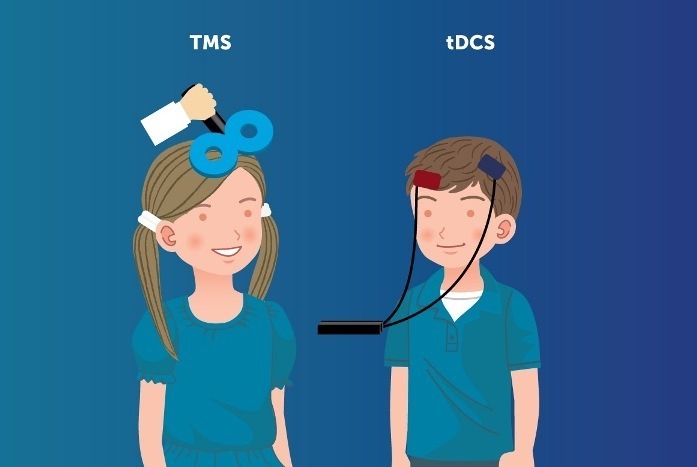Non-invasive brain stimulation in children creates opportunities and risks
 Brain Stimulation in Children Spurs Hope—and Concern (Scientific American):
Brain Stimulation in Children Spurs Hope—and Concern (Scientific American):
“The idea of using magnets or electric currents to treat psychiatric or learning disorders — or just to enhance cognition — has generated a flurry of excitement over the past ten years. The technique is thought to work by activating neural circuits or by making it easier for neurons to fire. The research is still in its infancy, but at least 10,000 adults have undergone such stimulation, and it seems to be safe — at least in the short term. One version of the technology, called transcranial magnetic stimulation (TMS), has been approved by the US Food and Drug Administration to treat migraine and depression in adults.
Interest is growing, however, in whether such technologies might have even greater benefits in children. Particularly promising is TMS’s cheaper and more-portable cousin, transcranial direct-current stimulation (TDCS)…
Researchers say that the stimulation effects are likely to penetrate deeper in children because their skulls are thinner than adults’, and might have more of an impact in brains that are still growing. However, the same factors that intensify the potential benefits are also cause for concern…(researcher Nick Davis) estimates that at least 1,000 children around the world have received some kind of brain stimulation as part of clinical studies, and expects more in future. He stresses the importance of publishing the results of any work done in children. “I would urge all scientists to share their results when children and young people are given brain stimulation, to allow other scientists to learn from ‘failed’ trials and to adapt the protocols if needed.”
Learn more:
- Article: Transcranial Direct Current Stimulation (tDCS) as depression treatment: much promise, some DIY risks
- Example at Boston’s Children Hospital: Epilepsy Center Brain Stimulation for Epilepsy
- Book: The SharpBrains Guide to Brain Fitness: How to Optimize Brain Health and Performance at Any Age
- Market report: Pervasive Neurotechnology: A Groundbreaking Analysis of 10,000+ Patent Filings Transforming Medicine, Health, Entertainment and Business


